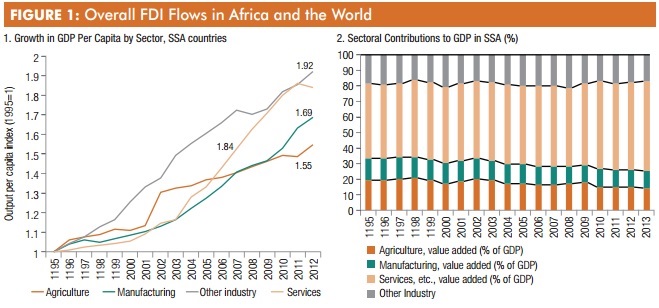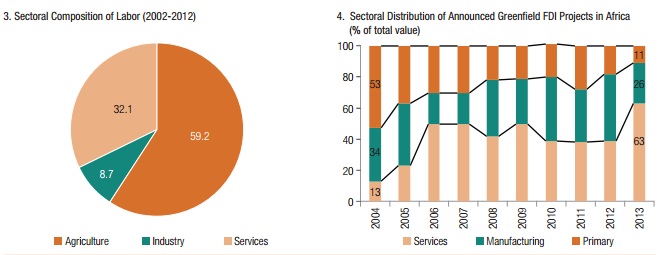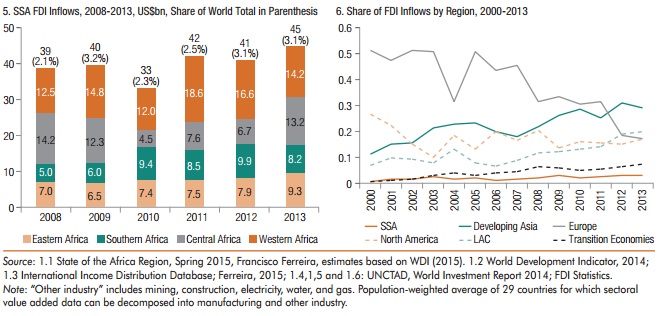News
The Investing in Africa Forum: Partnering to accelerate investment, industrialization, and results in Africa

The Investing in Africa Forum: Partnering to Accelerate Investment, Industrializa-tion, and Results was held June 30-July 1, 2015, in Addis Ababa, Ethiopia, co-organized by the Government of Ethiopia, the China Development Bank, the China-Africa Development Fund, the World Bank Group, and the United Nations Industrial Development Organization. It brought together representatives of the public and private sector from China and African countries. Regional institutions, development partners and think tanks also attended.
Participants exchanged views on how African countries could attract greater investment, accelerate industrialization, create jobs and sustain development. The Chinese and African experiences were shared in order to provide information and lessons learned, and identify opportunities for enhanced partnerships.
H.E. Hailemariam Desalegn, the Prime Minister of Ethiopia opened the Forum and outlined the practical steps that Ethiopia is taking to become a manufacturing hub on the continent. Representatives of the other co-organizers – H.E. Liu Jianhua, the Vice Minister of Finance of China, Mr. Makhtar Diop, Vice President for Africa of the World Bank, Mr. Yuan Li, Executive Vice President of the China Development Bank, and Mr. Philippe Scholtes, Managing Director of the United Nations Industrial Development Organization, also spoke during the opening session. In his opening remarks, H.E. Xu Shaohua, Executive Vice Governor of Guangdong Province, indicated that Guangdong Province would host the next Forum in 2016.
The Forum was an opportunity for pragmatic, candid and constructive discussions on practical steps to accelerate industrialization and manufacturing; Special Economic Zones and ideas for how to make them work better in Africa; accelerating improvements in infrastructure and trade logistics; creating conditions to attract development-oriented investment; skills development for private-sector led growth; and on scaled up agriculture and agribusiness investments that also benefit rural populations.
There was agreement that African countries could benefit from elements of China’s experience, although the situation in each country must determine the strategies to be followed. When it began its process of industrialization, conditions in China were very similar to those pertaining in many African countries today. Key priorities of China’s development strategy was pragmatic and long term. It included an emphasis on education and training, expansion of infrastructure, increased agricultural productivity, incomes of smallholder farmers and food security, and labor intensive light manufacturing as the basis for industrialization. It established Special Economic Zones as vehicles to pilot economic reforms before adopting them nationally, and to open the economy to foreign investment, technology and skills.
Participants also agreed that African countries could benefit from changes in the structure of the Chinese economy, including a more highly skilled labor force and development of the service sector. The Government of China is encouraging outward investment, and more private companies engaged in manufacturing, as well as agribusiness, are relocating abroad. Provided they have the right policies in place and a conducive and inclusive business climate, African countries would be well-placed to attract this investment and expand manufacturing and agricultural production. It would be important to ensure upstream and downstream linkages with domestic private sector operators to maximize the impact of this investment.
The Forum agreed that Africa can accelerate investment and industrialization, building on its comparative advantages, youthful population and growing middle class. In many countries, competitive wages and proximity and access to developed markets provide opportunities for expansion of collaboration with China including relocation of manufacturing industries.
The Forum appreciated announcements by the Ministry of Finance of China that it is establishing a Trust Fund at the World Bank Group with a focus on infrastructure, including strong support to African countries, and that it, the China Development Bank and the World Bank Group will establish an Investing in Africa Think Tank Alliance. It also appreciated the announcement the China Development Bank and UNIDO signed an MOU during the Forum to consolidate each other’s strengths and resources for future cooperation, including in Africa. Participants also welcomed the announcement that Guangdong Province will host the next Investing in Africa Forum in 2016 as an affirmation that support to accelerate investment and industrialization is an ongoing partnership with African countries.



Source: Manufacturing FDI in Sub-saharan Africa: Trends, Determinants, and Impact (World Bank Group, 2015)
Downloads
- China and Africa: Expanding economic ties in an evolving global context
- Fostering Inclusive Outcomes in African Agriculture: Improving Agricultural Productivity and Expanding Agribusiness Opportunities through Better Policies and Investments
- Manufacturing FDI in Sub-saharan Africa: Trends, Determinants, and Impact
- Global Experiences with Special Economic Zones – With a Focus on China and Africa
- The Imperative of Skills Development for the Structural Transformation of Sub-Saharan Africa: Potential for China-World Bank-Africa Collaboration




